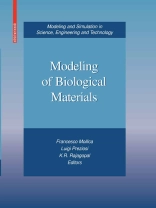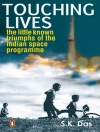One of the primary purposes and obligations of science, in addition to – derstandingnatureingeneralandlifeinparticular, istoassistinenhancing the quality and longevity of life, indeed a most daunting challenge. To be able to meaningfully meet the last of the above expectations, it is nec- sary to provide the practitioner of medicine with diagnostic and predictive capabilities that science will accord when its seemingly disparate parts are melded together and brought to bear on the problems that they face. The development of interdisciplinary activities involving the various basic sciences—biology, physics, chemistry, and mathematics, and their applied counterparts, engineering and technology—is a necessary key to unlocking the mysteries of medicine, which at the moment is a curious admixture of art, craft, and science. Signi?cant strides have been taken during the past decades for putting intoplaceamethodologythattakesintoaccounttheinterplayofthevarious basic sciences. Considerable progress has been made in understanding the role that mechanics has to play in the development of medical procedures. Thiscollectionofsurveyarticlesaddressestheroleofmechanicswithregard to advances in the medical sciences. In particular, these survey articles bring to one’s attention the central role played by mathematical modeling in general and the modeling of mechanical issues in particular that have a bearing on the biology, chemistry, and physics of living matter.
Inhaltsverzeichnis
Rheology of Living Materials.- Biochemical and Biomechanical Aspects of Blood Flow.- Theoretical Modeling of Enlarging Intracranial Aneurysms.- Theoretical Modeling of Cyclically Loaded, Biodegradable Cylinders.- Regulation of Hemostatic System Function by Biochemical and Mechanical Factors.- Mechanical Properties of Human Mineralized Connective Tissues.- Mechanics in Tumor Growth.- Inhomogeneities in Biological Membranes.












